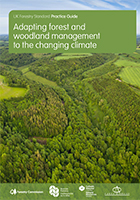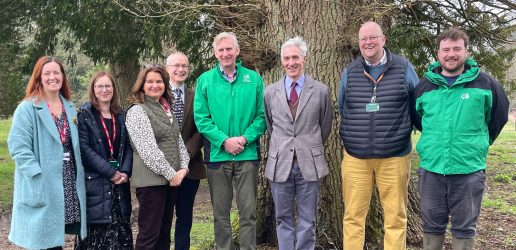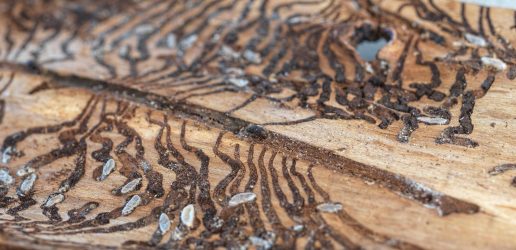
A new guide setting out how landowners and managers can adapt their woodlands in the face of climate change has been published today (Saturday 14th May) by the Forestry Commission, Scottish Forestry, Natural Resources Wales and the Northern Ireland Forest Service, as National Plant Health Week draws to a close.
The UK Forestry Standard Practice Guide ‘Adapting forest and woodland management to the changing climate’ outlines the steps that can be taken to foster woodlands which will be resilient to current and future threats as a result of climate change, such as drought, changing weather patterns and more frequent, severe weather events.
For our forests and woodlands to thrive, adaptation measures must be considered carefully. The guide presents a range of such measures, including diversifying the different types of trees planted across a landscape – such as changing the dominant species – to increase biodiversity. It also advises choosing seeds best suited for the local site and climate to reduce the risks associated with drought, frost, and pests and diseases. It is also recommended that landowners and foresters consider encouraging more natural regeneration. Naturally regenerated areas may reduce wind, drought, frost, pest and disease risk where individuals are better adapted to changing local site conditions.
Chair of the Forestry Commission, Sir William Worsley said:
The woodlands of the future need to be planted and managed differently if they are to be resilient to our changing climate.
By planting a more diverse range of tree species in the right place and in accordance with the UK Forestry Standard, we can foster healthy and thriving treescapes across the country. This new Guide will help land managers protect our precious woodlands and ensure their resilience for years to come.
Today’s publication follows a range of announcements throughout this week promoting the benefits of healthy trees and plants, as part of National Plant Health Week (9-15 May). These include the launch of the Forest Research Holt Laboratory and the Centre for Forest Protection, both of which will conduct innovative research into tree pests and diseases, as well as ways to manage emerging threats from climate change.
Woodland creation is an important part of the wider adaptation of society to climate change, as forests and woodlands can provide shade and shelter, give flood protection, and reduce both air pollution and soil erosion. Growing trees removes carbon dioxide from the air, stores the carbon in wood products throughout their life and helps manage the risk of flooding.
Implementing these steps into everyday forest management will support the delivery of the England Trees Action Plan, which sets out the Government’s long-term plan for the nation’s trees, woodlands and forests. It will also underpin wider Government efforts to at least treble tree planting rates in England by the end of this Parliament, plant 30,000 hectares of trees across the UK per year by 2025, and achieve Net Zero by 2050.
The Guide has been produced by Forest Research, part of the Forestry Commission and Great Britain’s principal organisation for forestry and tree-related research.
The UKFS Practice Guide to ‘Adapting forest and woodland management to the changing climate’ can be downloaded free of charge from the Forest Research online publications catalogue. Hard copies will also be available shortly (£12 per copy).
More information on supporting resources for the Guide is available here.



